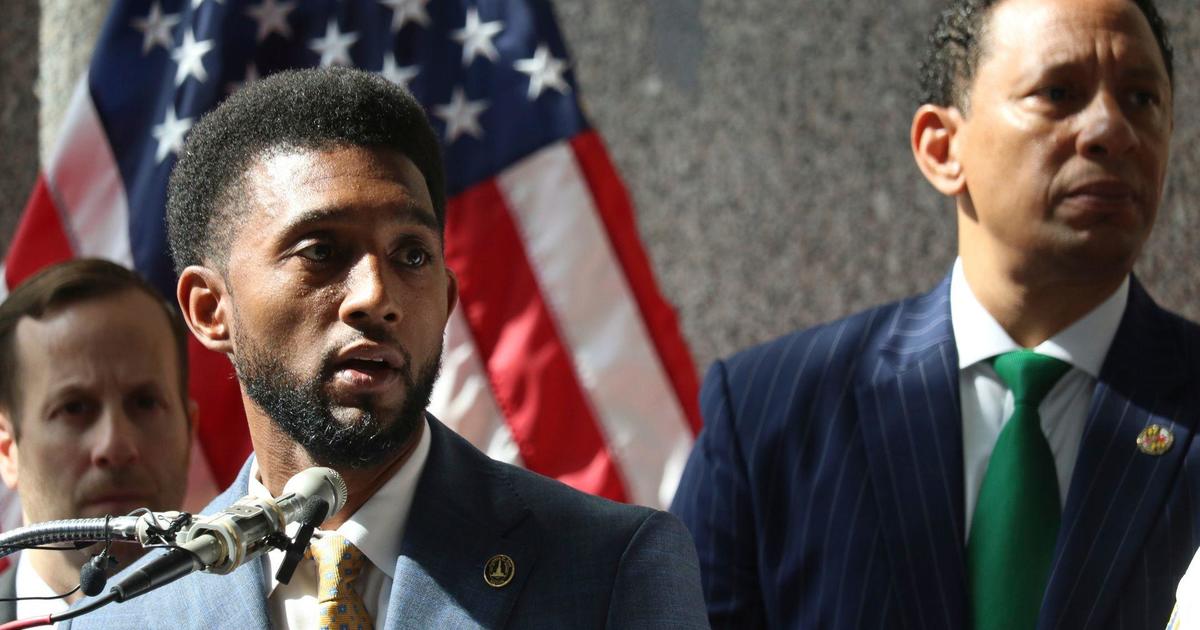Md. Senate Advances $39B Maryland Budget
ANNAPOLIS, Md. (AP) -- The Maryland Senate advanced the state's $39 billion budget on Wednesday, finding a quick solution to fill a drop in projected revenues by using money in a long-term plan to strengthen the state's pension system.
Sen. Edward Kasemeyer, who chairs the Senate budget committee, said two budget measures working in tandem to balance the state's books leave a $111 million cushion while providing nearly $800 million in the state's Rainy Day Fund. State employees also will receive a 2 percent general salary increase, regular merit raises and additional health insurance premium holidays, Kasemeyer, D-Baltimore County, said.
The Senate measures respond to $238 million in downward revenue estimates announced last week for this fiscal year and the next one.
"The budget is balanced in part by modifying the level of supplemental contributions to the retirement system, but we did so in a way that maintains our commitment to invest in the future stability of the retirement system," Kasemeyer said.
Gov. Martin O'Malley, a Democrat, had recommended capping the pension money at $200 million, instead of the $300 million that had been planned to be put back into the pension system above the required annual payment. The Senate has approved capping it at $100 million. The Senate gradually restores the money over several years, bringing it back to $300 million in fiscal year 2019.
Kasemeyer said the state would still be on track to fund the state's pension system at 85 percent in 2027 or 2028. State employee union officials have signed off on the plan to avoid losing state employee salary increases in the budget.
The Senate's Democratic majority shot down several amendments offered by Republicans.
Sen. David Brinkley, R-Frederick, proposed cutting spending by 1 percent across the board to save an additional $162 million. Sen. Richard Madaleno, D-Montgomery, compared the proposal to the automatic spending cuts triggered in the federal government last year.
Brinkley also proposed fencing off $500,000 in operational expenses for the flawed state health exchange until a state performance audit could be completed by Oct. 1. The troubled rollout has been a hot issue in an election year, and Brinkley argued that voters deserve to have information about what went wrong before the November election.
Sen. James Robey, D-Howard, said the federal government is planning a review, anyway. He questioned whether the state could meet an Oct. 1 deadline.
"First of all, let me agree with the senator from Frederick county that it is a debacle," Robey said of the health care exchange rollout. "It was a mess, and ... if I thought withholding $500,000 would make it better, I'd be the first to punch a green button for this, but I don't think it will."
Sen. Bryan Simonaire, R-Anne Arundel, offered an amendment to prevent money from being transferred from the Chesapeake Bay Trust Fund to help restore the health of the nation's largest estuary. Simonaire criticized additional costs on residents in recent years, such as a doubling of the state's tax on sewer bills and an additional fee on stormwater mananagement, when money has been consistently transferred from the bay fund.
"We've seen, over in the last five years, over $100 million diverted from the Chesapeake Bay Trust Fund into the general fund," Simoniare said.
Sen. James DeGrange, D-Anne Arundel, said the governor included $42 million in the budget for the fund. Much less is being transferred now than in past years. DeGrange also said senators decided to reject a recommendation to cut another $10 million from the fund -- after the added shortfall was announced last week.
(Copyright 2013 by The Associated Press. All Rights Reserved.)



